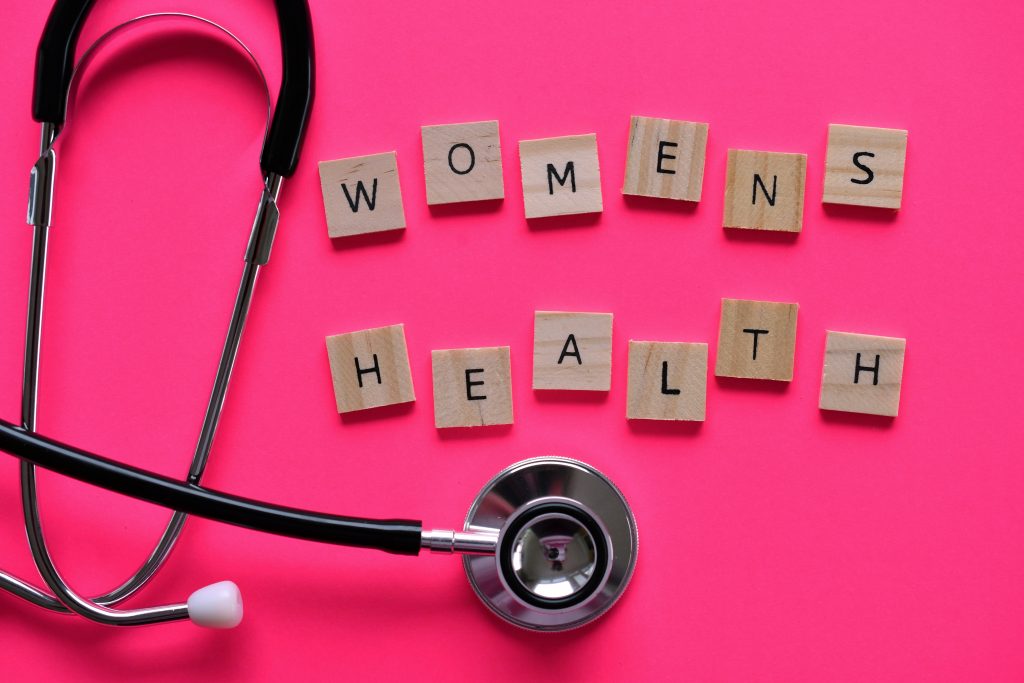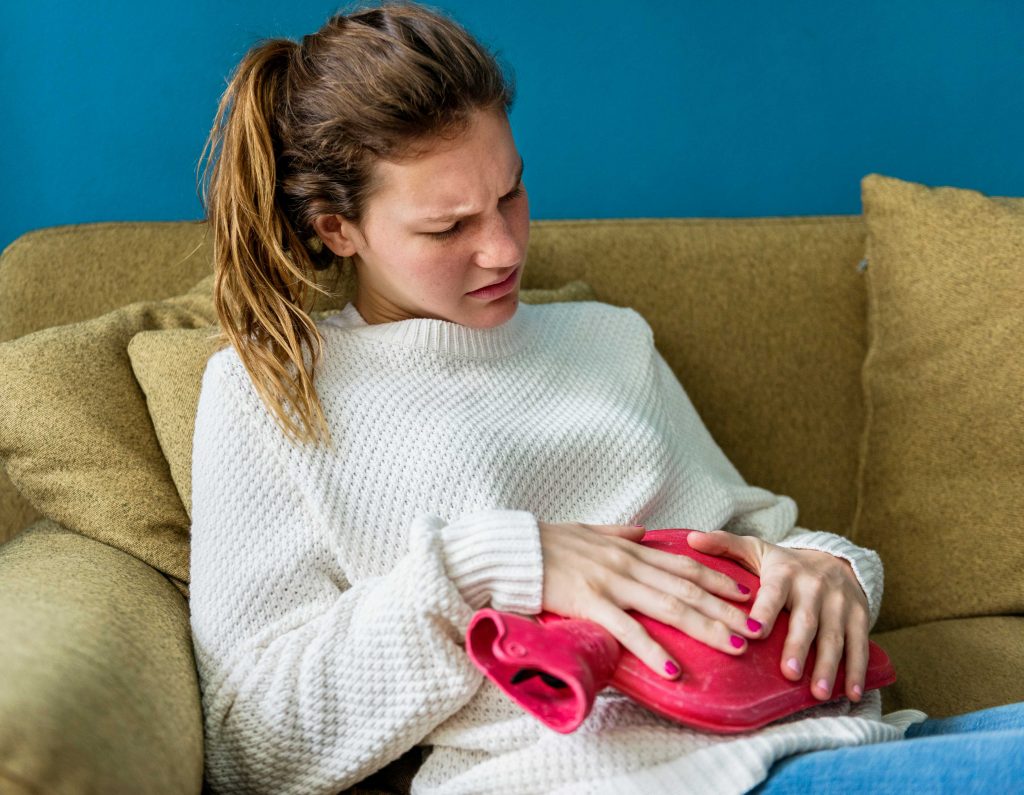Depression. Bloating. Headache. Mood swings. Fatigue. Breakouts. Ugh! If these nasty symptoms make you dread Mother Nature’s monthly visit, you’re not alone. According to the American College of Obstetricians and Gynecologists, more than 85 percent of women experience at least one uncomfortable premenstrual syndrome (PMS) side effect. For many, these side effects aren’t just pesky they’re downright debilitating—so much so that one British company recently announced their plans to create an official “period policy” according to which, women staffers can take time off to nurse their cramps and relax without dipping into their sick or personal days.
Above all this, believe it or not, there is a silver lining! You must have heard this phrase: “You are what you eat”. A lot can depend on the things you ate during the times of PMS or you eat during your periods. Some foods could make the matter worse, whilst others may be preferable as they contain most of the vital nutrients that women are most likely lacking.
In today’s blog post let us tell you about the food you should eat and avoid during your period, to reduce uncomfortable monthly symptoms.

Foods to eat:
1. Vegetables and Fruits: According to a 2018 Spanish study, vegetarian diets, and simply eating more fruits and vegetables corresponded to fewer cramps and reduced menstrual pain.
Citrus fruits like oranges, lemons, and limes contain both calcium and vitamins. Calcium paired with vitamin D can ward off PMS symptoms and can ease cramps, aches, and pains.
Another fruit, banana, is high in potassium and B6 vitamins. Both of the components will benefit your mental health, will regulate bowel movements, and decrease the amount of water you retain, making you feel less bloated. Bananas are great if you just need a little push to get out of bed and start the day.
Instead of munching on burgers, fries, go for vegetables like kale, spinach, Swiss chard, and more to add iron into your body.
2. Dark Chocolate: If you are craving chocolates, then you can easily eat dark chocolate completely guilt-free! It is great because it contains lower levels of sugar, and is also full of magnesium (a mineral that regulates your serotonin levels) which will help control your mood swings.
3. Fish and Chicken: Oily fish including salmon, tuna, sardines, trout, anchovies, or herring are rich in protein, iron, and omega-3 fatty acids. According to a 2012 study, omega-3s can reduce the intensity of period pain.
Chicken is another iron and protein-rich food which you can add to your diet while in periods. Eating protein can help you stay full and sated during your period, curbing cravings.
4. Yogurt: If you read further, you will get to know that we are strictly saying “No” to eating dairy products during periods. But Yogurt can be an exception. Yogurt is rich in magnesium and other essential nutrients, like calcium which can significantly reduce PMS symptoms like bloating and moodiness. It can also fight against periods related yeast infection.
5. Flaxseed oil: Every 15 milliliters of flaxseed oil contains 7,195 milligrams of omega-3 fatty acids. According to the Office of Dietary Supplements, you need only about 1,100 to 1,600 milligrams of omega-3s per day. Omega-3 fatty acids can reduce inflammation in the body, and may help tackle period cramps.
6. Wholegrains: Whole Grains are very nutritious and are a rich source of fiber. They are thought to be having close connections between digestive health and uncomfortable monthly symptoms. Some examples of wholegrains include brown rice, oats, lentils, couscous, quinoa, and barley.
Pro tip: Drink enough water and stay hydrated throughout and before your periods, as it will help with the PMS symptoms.
Food to avoid:

1. Caffeine: Dietitian Isabel Smith warns: “Caffeine causes blood vessels to constrict, and that includes those that feed the uterus. When this happens, it can bring on more intense cramps.” It also decreases your body’s ability to absorb iron, affecting your energy levels and increasing PMS symptoms.
Aside from steering clear of things like coffee, tea, and soda, make sure to avoid hidden sources of caffeine: chocolate, coffee and chocolate-flavored snacks (as well as certain nutrition bars, vitamin-infused beverages, and multivitamins).
2. Sugar: Sugar can increase your energy levels at first, making you feel good, but ultimately your energy levels will crash just as suddenly as they rose, leaving you even grumpier and more lethargic than before.
Sugary foods like cookies, cake, candy bars (and even hidden sugar bombs like flavored yogurts and BBQ sauce) can shift levels of estrogen and testosterone, decreasing serotonin levels, making your mood swings worse.
3. Dairy Products: You may have heard that calcium helps with cramps, but that’s not the case when it comes from dairy. This might come as a surprise, but dairy products like milk, cheese, and cream are foods to avoid during periods. They are high in arachidonic acid which can act as a trigger for menstrual cramps.
4. Salty and Spicy Foods: The hormone responsible for menstruation already causes water retention and a high salt diet will cause you to feel gassy, and bloated and this was shown in a 2019 study.
Many people find that eating spicy foods upset their stomachs, giving them stomach pain, diarrhea, and even nausea. It’s best to avoid eating spicy foods when you are on your periods.
5. Red Meat: Red meat may be high in iron, but it is also high in prostaglandins and should be avoided during periods. Prostaglandins: It is produced during your periods, these compounds help your uterus to contract, causing cramps.
6. Alcohol: When you’re on your period, reduce or eliminate the consumption of alcoholic beverages. You can always opt for virgin drinks. The loss of blood at this time lowers your blood pressure, making you more vulnerable to alcohol’s side effects. It also aggravates fatigue and boosts menstrual flow and can also cause irregular periods.
Conclusion:
It’s important to keep an eye on what you’re eating during your period if you suffer from some of the symptoms associated with PMS. That means doubling up on the foods that help support a happier period and limiting those that don’t.
If your periods are particularly painful, to a point that you have difficulty functioning, it is advised to see a doctor for the same. As it could be a symptom of a deeper health issue.
Stay healthy!

